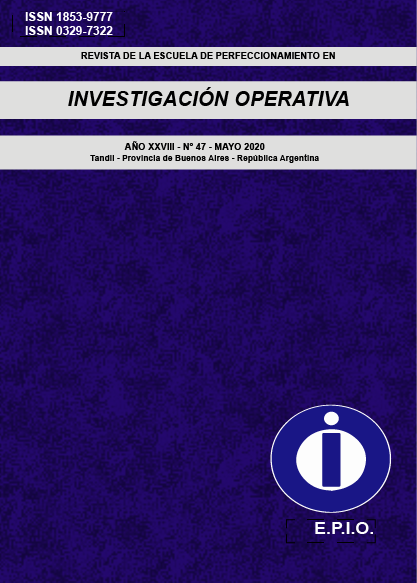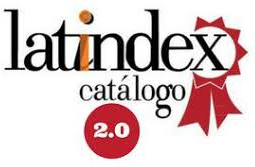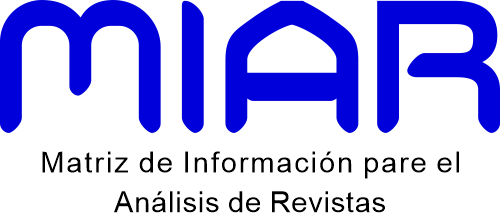Cognición empírica en un curso de modelos y simulación
Un caso en una carrera de la disciplina informática
Abstract
In higher education, innovations are promoted in order to achieve significant learning applying active methodologies in order to generate superior cognitive abilities. In this paper the method applied in Models and Simulation subject in 2018 is exposed. The results revealed how active methodologies are integrated into a student-centered educational experience, so the student must to define and solve a problematic situation through the final integrative work using creativity, analysis and critical thinking according a cognition empirical context. Finally, conclusions are expressed and some future lines of work are included.
Downloads
References
ARANO CHÁVEZ, R. M., ESPINOSA MEJÍA, F. y ARROYO GRANT, G. (2012): “EL ESTUDIO DE CASO COGNITIVO CON UN ENFOQUE HACIA LAS CIENCIAS ADMINISTRATIVAS Y EMPRESARIALES”. Revista Ciencias Administrativas, vol.2, pp.34-36. Disponible en: https://www.uv.mx/iiesca/files/2012/12/caso2010-2.pdf
BERGER VIDAL, E., GAMBINI LÓPEZ, I. y VELÁZQUEZ PINO, C. (2000): “SIMULACIÓN DE SISTEMAS”. Notas del Instituto de Investigación en Ciencias Matemáticas.
CAMPILLAY BRIONES, S. y MELÉNDEZ ARAYA, N. (2015): “ANÁLISIS DE IMPACTO DE METODOLOGÍA ACTIVA Y APRENDIZAJE HEURÍSTICO EN ASIGNATURAS DE INGENIERÍA”. Revista Electrónica Actualidades Investigativas en Educación, vol.15, n.2, pp. 1-15 https://www.scielo.sa.cr/pdf/aie/v15n2/a14v15n2.pdf
GARCÍA, P. (2015): “CARACTERIZACIÓN DE UNA NOCIÓN DE SIMULACIÓN A PARTIR DE PRÁCTICAS EXPERIMENTALES”. Principia: An International Journal of Epistemology, vol.19, n.2, pp. 217-234.
ESPEJO, R. y SARMIENTO, R. (2017): “MANUAL DE APOYO DOCENTE: METODOLOGÍAS ACTIVAS PARA EL APRENDIZAJE”. Universidad Central, Santiago.
DAVINI, M. C. (2008): “MÉTODOS ACTIVOS DE ENSEÑANZA Y APRENDIZAJE, LA INTEGRACIÓN DEL CONOCIMIENTO Y LA PRÁCTICA”. Versión adaptada del capítulo 5 del libro de Davini, M.C., “Métodos de enseñanza”, Editorial Santillana, Buenos Aires, pp 113-133, Disponible en: https://cursos.campusvirtualsp.org/pluginfile.php/86441/mod_resource/content/1/M%C3%A9todos%20activos.pdf
DÍAZ, M. Y DEL LAGO, S. (2008). “EDUCACIÓN A DISTANCIA EN EL NIVEL SUPERIOR: UN ANÁLISIS SOBRE LAS PRÁCTICAS DE EVALUACIÓN DE LOS APRENDIZAJES”. Anales del III Encuentro Internacional Educación, Formación, Nuevas tecnologías. ISBN: 978-9974-8031-1-4
FaCENA (2009): Plan de Estudios de la carrera Licenciatura en Sistemas de Información. Resol. 1137/09 CS. UNNE.
GARIZURIETA BERNABÉ, J., MUÑOZ MARTÍNEZ, A.; OTERO ESCOBAR, A. D. y GONZÁLEZ BENÍTEZ, R. A. (2018): “SIMULADORES DE NEGOCIOS COMO HERRAMIENTA DE ENSEÑANZA APRENDIZAJE EN LA EDUCACIÓN SUPERIOR”. Apert. (Guadalaj., Jal.) [online]. vol.10, n.2, pp. 36-49, http://dx.doi.org/10.18381/Ap.v10n2.1381
LEÓN DÍAZ, O., MARTÍNEZ MUÑOZ, L. F. y SANTOS PASTOS, M. L. (2018): “ANÁLISIS DE LA INVESTIGACIÓN SOBRE APRENDIZAJE BASADO EN PROYECTOS EN EDUCACIÓN FÍSICA”. Revista Electrónica Interuniversitaria de Formación del Profesorado, vol.21, n. 2, pp. 27-42.
MANCINAS GONZÁLEZ, A. (2018): “MODALIDADES DE COGNICIÓN EN UN CURSO UNIVERSITARIO BASADO EN EL APRENDIZAJE MÓVIL”. Apert. (Guadalaj., Jal.) [online]. vol.10, n.1, pp.40-55. ISSN 2007-1094. Disponible en: http://www.scielo.org.mx/scielo.php?script=sci_abstract&pid=S1665-61802018000100040&lng=es&nrm=iso
MARIÑO, S. I. y LÓPEZ, M. V. (2011): “EXPERIENCIAS EN DOCENCIA E INVESTIGACIÓN EN LA ASIGNATURA MODELOS Y SIMULACIÓN DE LA FACENA-UNNE”, XIII Workshop de Investigadores en Ciencias de la Computación, pp. 798-801.
MARIÑO, S. I.; LÓPEZ, M. V. y ALDERETE, R. Y. (2012): “EVALUACIÓN FORMATIVA EN LA ASIGNATURA MODELOS Y SIMULACIÓN”. Revista Iberoamericana de Educación, vol.59, n.4, pp 7.
MESEGUER DUEÑAS, J. M., VIDAURRE, A., MOLINA MATEO, J.; RIERA, J. y MARTÍNEZ SALA, R. (2017): “VALIDACIÓN DE LA EVALUACIÓN DE LOS ESTUDIANTES EN LA COMUNICACIÓN ORAL EFICAZ EN GRADOS DE INGENIERÍA”, Revista IEEE-RITA, vol.13, n.1, pp 11-16, DOI: https://doi.org/10.1109/RITA.2018.2801897
POZO, J. I. (2006): TEORÍAS COGNITIVAS DEL APRENDIZAJE, 9na edición, Ed Morata.
RED UNCI, (2016): Descriptores Curriculares de la disciplina Informática.
RESOLUCIÓN MINISTERIAL Nº 786/09. Argentina. Ministerio de Educación de la República Argentina.
ROCA LLOBET, J., REGUANT ÁLVAREZ, M. y CANET VELEZ, O. (2015): “APRENDIZAJE BASADO EN PROBLEMAS, ESTUDIO DE CASOS Y METODOLOGÍA TRADICIONAL: UNA EXPERIENCIA CONCRETA EN EL GRADO EN ENFERMERÍA”, Procedia - Social and Behavioral Sciences, 196, pp. 725-734.
SILVA QUIROZ, J. y MATURANA CASTILLO, D. (2017): “UNA PROPUESTA DE MODELO PARA INTRODUCIR METODOLOGÍAS ACTIVAS EN EDUCACIÓN SUPERIOR”. Revista Innovación Educativa, vol.17, n. 73, pp. 117-131.
SUBIRÁ PEREIRA, C. y DOS SANTOS J. (2018): “METODOLOGIAS DE ENSINO PARA A FORMAÇÃO DE ENGENHEIROS NO ENSINO SUPERIOR: UMA REVISÃO SISTEMÁTICA”, Laplage em Revista (Sorocaba), vol.4, n.3, set. dez. 2018, pp. 180-189.
Downloads
Published
Issue
Section
License
Atribución — Usted debe dar crédito de manera adecuada, brindar un enlace a la licencia, e indicar si se han realizado cambios. Puede hacerlo en cualquier forma razonable, pero no de forma tal que sugiera que usted o su uso tienen el apoyo de la licenciante.
NoComercial — Usted no puede hacer uso del material con propósitos comerciales.
CompartirIgual — Si remezcla, transforma o crea a partir del material, debe distribuir su contribución bajo la misma licencia del original.







